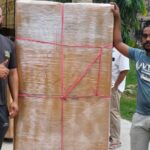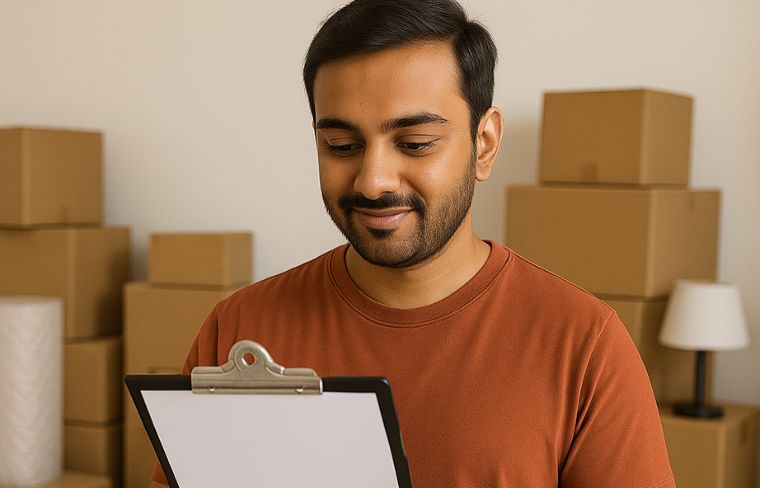Essential Documents and Items to Keep Handy on Moving Day
Moving day is often a whirlwind of activity — boxes everywhere, trucks arriving, and countless tasks demanding your attention. Amidst the chaos, it’s easy to lose track of important documents and essential items that you’ll need immediately. Losing or misplacing these could delay your move or create unnecessary stress.
That’s why keeping certain documents and essentials handy on moving day is absolutely crucial. This guide breaks down the must-have documents and items you should keep accessible to ensure a smooth, organized transition to your new home.
Personal Identification Documents
Your identity documents are key for everything from verifying your address to emergencies.
Make sure you keep your:
Passport
Driver’s license
Aadhaar card
PAN card
in a secure, easy-to-access place. These will be important not just on moving day but for updating addresses and other official procedures afterward.
Moving Contract and Contact Information
Keep a printed or digital copy of your moving company contract or agreement with you.
This should include details of the services, agreed costs, and timelines.
Have handy the phone number of your moving company and your assigned coordinator.
Keep emergency contacts ready in case you need quick help.
Medical Records and Prescriptions
If you or your family members have ongoing medical needs, carry:
Copies of medical records or vaccination cards.
Prescriptions for medications.
For pets, health certificates or vet records.
Having these documents will help in case of health emergencies or when setting up new healthcare providers.
Financial Documents
Keep your important financial documents close by:
Bank account details and checkbooks.
Credit and debit cards.
Insurance policies for home, vehicle, and health.
You might need to pay last-minute bills or update your new address with financial institutio
Utility and Service Documents
Moving involves transferring or setting up utilities like electricity, water, gas, and internet.
Keep confirmation slips or emails handy for connection and disconnection.
Have recent bills available for reference.
This can help prevent delays in getting your new home fully functional.
Keys and Access Cards
Always keep keys separate from packed boxes.
Keys for your old and new home.
Mailbox keys.
Storage or locker keys.
Remote controls or security cards.
Losing keys during a move is a common headache you can easily avoid.
Important Electronics and Chargers
Moving day can be long, so stay connected.
Keep your phone, laptop, tablets, and their chargers handy.
A power bank is a great backup.
These devices help you stay organized and reachable.
Essentials Bag
Prepare a small bag or box with everything you’ll need immediately:
A change of clothes.
Toiletries like toothbrush, soap, towel.
Snacks and water bottles.
Basic kitchen utensils if needed.
This “survival kit” will make your first night in the new home comfortable.
Valuables and Sentimental Items
Important or irreplaceable items should never go on the moving truck.
Jewelry, watches, or cash.
Family heirlooms and sentimental objects.
Keep these with you to avoid loss or damage.
Emergency and Safety Items
A few emergency items can save the day:
First aid kit.
Flashlight and batteries.
Basic tools (screwdrivers, tape).
Important phone numbers written down.
Be prepared for small fixes or unexpected situations.
Conclusion
Moving day will always be busy and hectic, but keeping your essential documents and items handy can save you from unnecessary chaos and stress. Preparing a dedicated “moving day essentials” bag or folder lets you stay organized and calm.
By taking these simple steps, you ensure that your move goes smoothly — from the first box packed to the moment you settle in your new home. Remember, a little preparation goes a long way!
You should keep personal ID (passport, driver’s license, Aadhaar, PAN), moving contracts, medical records, financial documents, and utility confirmations easily accessible.
Keeping keys for both your old and new homes separately helps avoid delays, lockouts, or lost access on moving day.
Always keep important electronics like your phone, laptop, and chargers with you to stay connected and organized throughout the move.
Include a change of clothes, toiletries, snacks, water, medications, chargers, and any must-have items to make the first day in your new home comfortable.
Carry a basic first aid kit, flashlight with batteries, small tools, and a list of emergency contacts in case something unexpected comes up.
Start early, dress comfortably, stay hydrated, assign someone to care for kids or pets, and follow a clear checklist like this guide.





